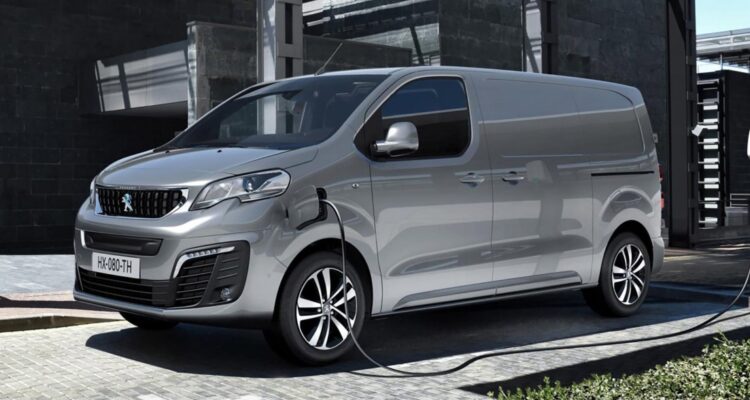In a significant move to promote the adoption of zero-emission commercial vehicles, the UK government has announced the extension of the Plug-in Van Grant (PIVG) scheme until April 2026. This initiative aims to support businesses and individuals in transitioning to electric vans by providing substantial financial incentives.
On 25 February 2025, the Department for Transport (DfT) confirmed an additional £120 million in funding for the PIVG, ensuring its continuation for another year. This extension is part of a broader £2.3 billion package designed to facilitate the shift towards zero-emission vehicles across the nation.
The PIVG offers varying levels of financial support based on the size and specifications of the electric van:
- Small Vans: Eligible for a grant covering 35% of the purchase price, up to a maximum of £2,500. To qualify, these vehicles must:
- Have a gross vehicle weight (GVW) of less than 2,500 kilograms.
- Emit CO₂ emissions below 50g/km.
- Be capable of traveling at least 96 km (60 miles) without any emissions
- Large Vans: Eligible for a grant covering 35% of the purchase price, up to a maximum of £5,000. Eligibility criteria include:
- A GVW between 2,500 kg and 4,250 kg.
- CO₂ emissions below 50g/km.
- A minimum zero-emission range of 96 km (60 miles).
- Heavier Vehicles: Certain electric trucks and vans with a GVW exceeding 4,250 kg may qualify for a grant of up to £16,000, capped at 20% of the purchase price.
To benefit from the PIVG, vehicles must meet specific standards:
- Emission Standards: Vehicles must produce CO₂ emissions below 50g/km and have a zero-emission range of at least 96 km (60 miles).
- Weight Specifications: Depending on the vehicle category, weight limits range from under 2,500 kg for small vans to over 4,250 kg for heavier models.
- Approved Models: Only vehicles approved by the government are eligible. Aftermarket conversions do not qualify; the vehicle must be manufactured or converted to electric power before its first registration.
The grant is typically applied directly at the point of purchase, reducing the vehicle’s upfront cost. Dealerships and manufacturers handle the application process on behalf of the buyer, ensuring a seamless experience. It’s essential to verify that the chosen vehicle is listed among the eligible models to qualify for the grant.
Adopting electric vans offers numerous advantages:
- Cost Savings: Reduced fuel and maintenance expenses contribute to lower total ownership costs over time.
- Environmental Impact: Electric vehicles produce zero tailpipe emissions, significantly reducing the carbon footprint.
- Regulatory Compliance: With increasing low-emission zones and stricter environmental regulations, electric vans ensure compliance and avoid potential charges.
The extension of the PIVG to April 2026 underscores the UK’s commitment to achieving its environmental targets and supporting the automotive industry’s transition to sustainable energy solutions. Businesses and individuals are encouraged to take advantage of this extended grant period to modernize their fleets and contribute to a greener future.
The extended Plug-in Van Grant presents a valuable opportunity for those considering the switch to electric vans. By understanding the eligibility criteria and benefits, businesses and individuals can make informed decisions that align with both economic and environmental objectives.
Matthew Dillon, Head of Commercial Vehicles at Ayvens, comments: “The Government’s confirmation of a one-year extension to the Plug-In Van Grant (PiVG) is a positive step, reinforcing the crucial role financial incentives play in helping commercial vehicle fleets transition to zero-emission alternatives.
“Another welcome announcement is the removal of the additional driver training hours required to operate heavier alternative-fuelled vehicles (AFVs). This is a step in the right direction, addressing some of the uncertainty in the industry and giving fleet operators greater confidence to explore the operational capabilities of electric commercial vehicles up to 4.25 tonnes.
“However, while these announcements demonstrate important progress, many fleet operators may still wait for further clarity following the consultation. In particular, clear guidance on MOT requirements for 4.25-tonne AFVs, as well as the associated costs and administrative implications, will be essential to ensure widespread adoption.
“Other challenges also remain, including vehicle availability, payload constraints, and the need for greater investment in infrastructure. However, the grant extension sends a strong signal to fleet operators running the UK’s most mission-critical fleets that the Government is committed to supporting their decarbonisation efforts.
“As fleet decarbonisation is happening in gradual stages, businesses must adopt EVs where feasible while also exploring ways to improve journey efficiency and minimise downtime. This is where Ayvens’ expertise and insight are invaluable. Our TCO+ (Total Cost of Operation + Insights) tool can help fleets to identify the most suitable vehicles for electrification while considering both drivers and journey patterns so they can make informed, strategic decisions for their operations.”






